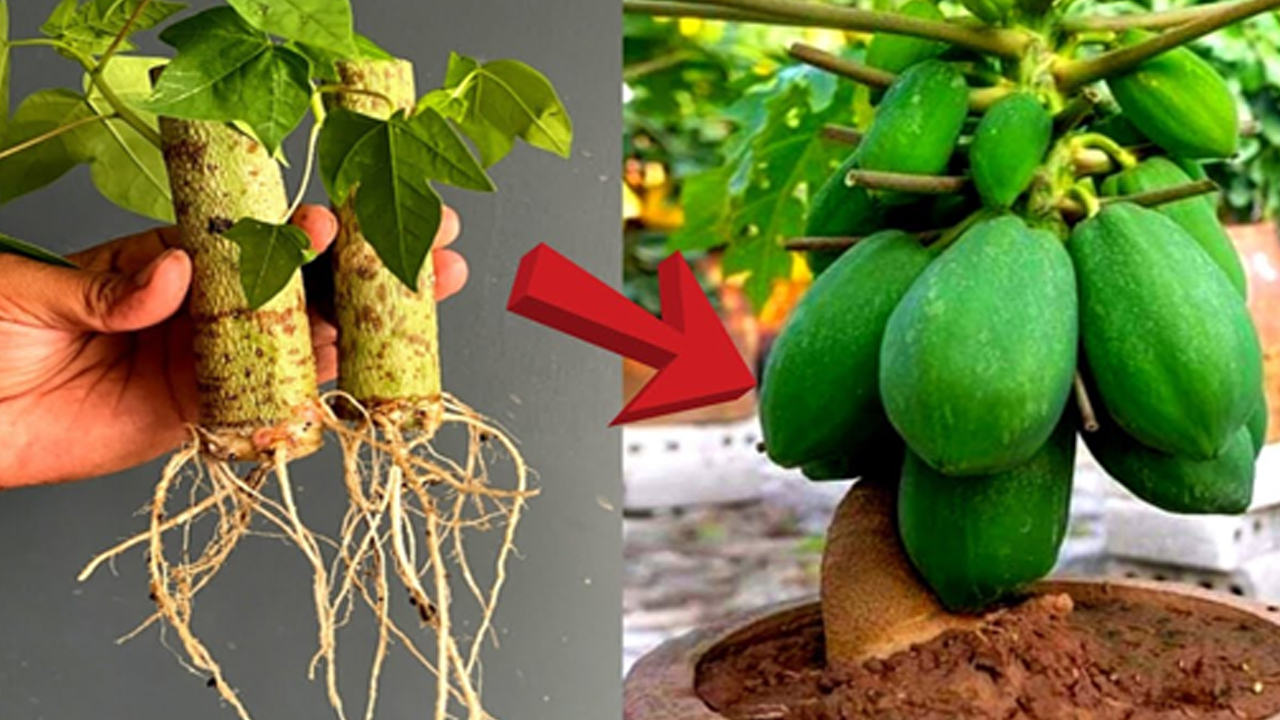Papayas are delicious tropical fruits that are not only flavorful but also beneficial for your health. Many gardening enthusiasts are eager to grow their own papaya trees, even in areas with cooler climates.
The good news is, with the right methods and a little effort, you can successfully grow papayas in pots right in your own backyard. In this comprehensive guide, we will show you how to cultivate a bountiful crop of papayas at home.
Choosing the Best Papaya Seeds
To start off, it is important to select high-quality papaya seeds. Here are some simple steps you can follow to obtain good seeds:
- Pick a Fully Ripe Papaya: Choose a papaya that is fully ripe. Make sure the seeds inside are fully developed and viable.
- Extracting the Seeds: Cut the papaya in half and remove the seeds from each side. Rinse the seeds to eliminate any pulp, then allow them to dry in the open air for a day or two.
Germinating Papaya Seeds
The germination process is crucial for the successful growth of papaya seeds. Follow these steps to prepare your seeds:
- Moist Paper Towel Method: Place the seeds evenly on a damp (but not soaked) paper towel. Fold the towel and put it in a ziplock bag.
- Provide Optimal Warmth: Papaya seeds require warmth to sprout. Keep the ziplock bag in a warm location, maintaining a temperature between 75°F and 85°F (24°C and 29°C) without exposing it to direct sunlight.
- Check for Germination: Every one to two weeks, inspect the paper towel to check if the seeds have sprouted and developed small roots. Once this happens, they are ready for planting.
Planting Papaya in Pots
Now that your seeds have sprouted, it’s time to transfer them to pots. Follow these guidelines to ensure successful growth in containers:
- Choose the Right Pot: Select a large pot with good drainage. A 10 to 15-gallon pot should be suitable.
- Prepare the Soil: Use well-draining potting mix with a pH level between 6.0 and 6.5. Enhance soil fertility by adding organic compost.
- Transplanting: Gently transfer the sprouted papaya seeds into the prepared pots. Ensure that the top of the root ball is level with the soil surface.
- Spacing: If you plan to grow multiple papaya plants, allow at least 10 feet of space between each plant to accommodate their full growth.
Tips for Caring for Your Papaya Plant
To help your papaya plant thrive, follow these care tips:
- Provide Sufficient Sunshine: Papayas require plenty of sunlight, at least 6 hours of direct sunlight each day.
- Proper Watering: Keep the soil consistently moist but not excessively saturated. Water deeply when the top inch of soil feels dry.
- Nutrient Boost: Papayas are heavy feeders, so fertilize them regularly. Apply a balanced fertilizer or one specifically formulated for fruit trees every two to four weeks during the tree’s growth phase.
- Pruning: Regularly trim off any dead or broken leaves and excess growth to maintain a well-shaped tree.
- Pest and Disease Control: Keep a close watch for aphids, mealybugs, and fruit flies, and take prompt action using organic pesticides when necessary.
- Support the Plant: As the plant grows, provide necessary support to prevent the weight of the fruit from causing the plant to topple over.
Harvesting Your Papayas
Your papaya plants should start bearing fruit within 6 to 9 months. To ensure optimal ripeness, harvest the papayas when they turn yellow or orange, depending on the variety. When gently twisted, the fruit should easily detach from the stem.
Growing papayas in pots can be a delightful and rewarding experience. Regardless of the size of your yard, you can enjoy the flavorful papayas from your own home as long as you provide them with proper care. Keep in mind that papaya trees have a lifespan of approximately 4 to 6 years, so be ready to start the process anew when your plant’s productive years come to an end. Happy planting!
Psst! If you found this article helpful, why not share it with your friends? They might enjoy it too!
